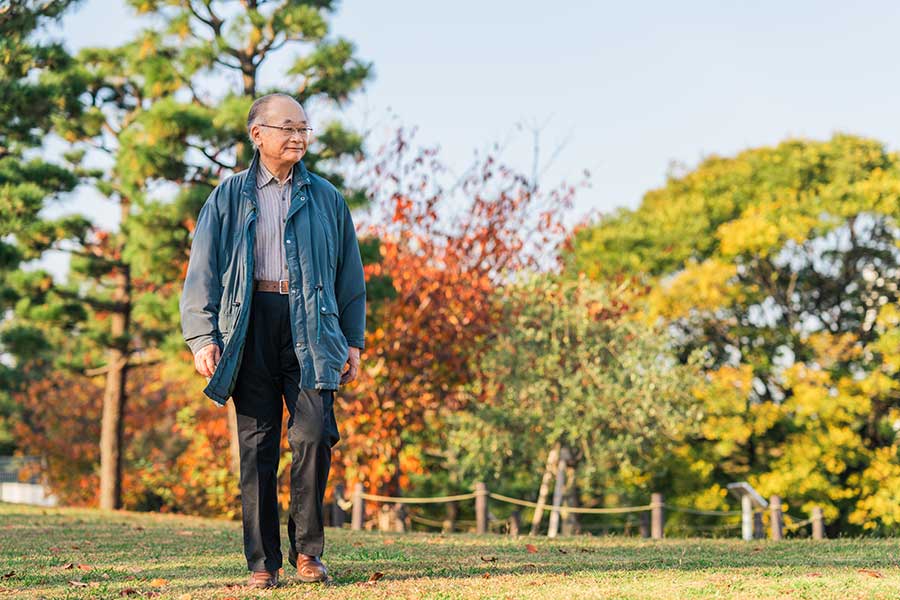Home to the biggest population on the globe, China can be a daunting place to live in at first, especially when it comes to understanding the health system. So, whether you’re moving to China as a working professional or to retire, it’s important to understand how healthcare standards, provisions and costs can vary greatly depending on your location. As many healthcare services centre around hospitals, the main cities often have much better access to medical services (public or private) than the more rural parts of the country.
In China, you have four main healthcare options:
- Public medical institutions – hospitals, wards and community centres owned by the government.
- International/VIP wards (known as "gaogan bingfang") – more expensive wards located in some public hospitals, which have English-speaking staff and better medical facilities.
- Private hospitals – hospitals, wards and specialist clinics funded by the private sector.
- International hospitals – a type of private hospital that must meet certain international standards.
Coverage for expats is dependent on the region. Due to language barriers, longer waiting times and differences in the public system (in many parts of China, emergency transport is not covered by the public health plan), many expats choose private health insurance when relocating to China.
The following sections discuss the Chinese healthcare system, many of the decisions expats will face and the benefits of international private healthcare cover in more detail.
The complete guide to healthcare in China
The quality of healthcare in China tends to be better in Urban areas than in the countryside. The healthcare system in China, is organised into three-tiers. The lowest tier being community walk-in clinics, followed by large hospitals and then specialist hospitals. However, many locals go straight to larger hospitals for minor illnesses, causing long waiting times. This is due to the poor quality of the community centres and their relatively recent national availability; natives are used to hospitals being the primary source of healthcare, hence why its part of the norm to seek medical attention from them first.
Chinese citizens, permanent residents and (dependant on region) expats can access public healthcare through China’s government insurance plans. Most expats use private insurance as the public health institutions are slower and many treatments (including emergency transportation) are not covered by government plans.
The premiums of Chinese state insurance are often high, and coverage is limited. Hence why accessing the Chinese health-care system can help with high costs.
For example: If you are relocating to China for work, your employer will often provide you with the necessary health insurance; similarly if you are working for an international company based in China, you are usually offered their own insurance plan or if you are self-employed, you can also benefit from the national plans but you’ll have to make these contributions privately.
Many companies provide broad coverage of a wide range of healthcare services, through comprehensive coverage. Therefore, you’ll have the chance to negotiate a private healthcare package, even if your employer is based in China.
Otherwise, if you aren’t self-employed or don’t have an employer that could cover you, then you will need to purchase private coverage until you are given residency status.
The state medical insurance plans cover primary, specialty, hospital, and mental health care, as well as prescription drugs and traditional Chinese medicine. However, there are differences in China’s public insurance plans that you may not be used to, such as, most of the imported western prescription medicines are not covered by them. Or although you have public health insurance, your non-working family members may not be covered. So, if you are thinking of relocating, you should thoroughly research what your public health insurance covers and whether you need extra private coverage.
Not all hospitals recognise all private insurers, including some Chinese insurers. So, you’ll have to pay a deposit or fees for medical services upfront - often in cash. Your insurance will reimburse you later.
Emergency care
Medical emergencies are usually well managed in urban than in rural areas, this is because waiting times can be longer as the emergency services are more limited. The emergency teams are trained to a high standard but may not speak English, so it would be useful for you to learn some basic phrases in the local dialect, as well as specific words for chronic illnesses or allergies. In case of emergency, dial 120 or 999. Expats, also often keep the details of their embassy to hand too. Information on emergency visits is not routinely sent to your GP (General Practitioner), so don’t forget to ask for a medical summary when you’re discharged.
Unfortunately, due to a shortage of state-regulated ambulances across China, private or ‘black’ ambulances have been used to meet demand. Many of these vehicles are unauthorised and staffed by unqualified professionals, so all expats are advised to avoid them.
Getting a doctor’s appointment in China
There are two types of hospitals in China: TCM (Traditional Chinese Medicine) and Western medicine. The former is often clearly marked by ‘TCM’ in the name of the hospital. Many physicians practice both types of medicine and may prescribe herbal medicine for non-life-threatening illnesses. Be aware that not all applications have English interfaces, and some pages will only be available in Chinese.
Booking an appointment with your doctor is not common in China, as locals tend to go straight to the hospital for any medical problem. To get an appointment with a physician at a hospital, you would need to use an online service. Locally, there are apps where you can see available doctors at hospitals in your area and book a consultation. Your doctor will assess you and then either run tests, prescribe you medicine or ask you to stay in if needed, for example, a surgery or observation.
Chinese Prescriptions and Pharmacies
In China, there is no shortage of pharmacies you’ll usually find at least one 24-hour pharmacy in most cities. They stock both traditional Chinese medicine and Western medicine. Your local pharmacist may not speak English but will still be of good help. Labels and instructions are often in Mandarin, don’t worry, a colleague, friend or an app can help you translate. Some Western medicines are restricted by the Chinese government, so if you need specific medication, you’ll need to check with your doctor and the Embassy for China to see if you can bring your own supply.
As part of the government’s measures to control the spread of Covid-19, it is not possible to buy antipyretics (such as ibuprofen and other medicines used to reduce a fever) from a pharmacy without a prescription.
Pregnancy and Giving Birth
You generally have the choice between a public, private or an international hospital. Check out our complete guide to pregnancy and giving birth in China to find out more. As the use of long-term oral contraceptive pills is not widely accepted in Chinese culture there is limited choice of medications for expats.
VIP Wards and International Hospitals
Bridging the gap between public and private healthcare, VIP wards (sometimes referred to as international wards) are found in some public hospitals. They are more expensive than public wards, but cheaper than private hospitals, and tend to have a higher standard of care along with English-speaking medical staff. Many of these wards don’t accept international insurance, so you’ll pay in cash and then claim the money back from your insurance provider.
International hospitals are a type of private hospital that meets certain international standards. In both cases, these hospitals offer a better standard of care and contain English-speaking staff, so they are preferred by expats.
Although public insurance covers many of your medical needs, there are significant limits to each policy and your medical care will be subject to deductibles and reimbursement ceilings. There is also no cap on out-of-pocket spending annually. Due to these gaps in coverage, delays and lack of English-speaking staff, private medical insurance is often favoured by expats.
Private health cover options for China
Long-term Cover
Need cover for more than 11 months?
Becoming part of a different culture can be daunting. But don’t worry, our annual cover plans are designed to bring you peace of mind so you can integrate seamlessly. With 24/7 support, you’ll be free to discover an entirely new part of the world.
Flexible Cover
Looking for cover for less than 12 months?
Whether you're travelling the world or visiting Shanghai for a few months, consider using our short-term cover. We can insure you for under 12 months with the same level of cover as our Foundation and Standard international insurance plan, just for less time.
Benefits of private health insurance in China
Famed for its rich history, ancient culture and incredible landscape, China is one of the most enriching places in the world to live. So, when moving don’t let concerns about healthcare distract you for a moment. Choose comprehensive health insurance that’s tailored to you.
Virtual Doctor service
One of the toughest parts of living somewhere new is learning the language. So, until you’re ready, you can talk with one of our doctors who speak a variety of languages. Available by phone or video consultation, day and night¹.
Evacuation and Repatriation
Wherever you are in China, in the event of an emergency if you can't get the care you need locally, we'll arrange evacuation and repatriation services to where you can.
Claims and Compensation
Simple and reliable compensation. With all the right information, around 80% of eligible claims are paid within 48 hours².
Emergency cover
For a new life in China, choose the right level of cover for you, from a range of comprehensive cover plans with dental and medical scans (CT, PET, MRI) as standard.
Mind Health service
Leaving home for potentially a different way of life can be overwhelming. From the Xi’an hills to the busy streets of Guangzhou, our qualified psychologists are always available on our dedicated Mind Health service.³
Second Medical Opinion service
Navigating the Chinese medical system isn’t always straightforward. So, when you need some reassurance, you can get an independent second medical opinion from the experts at Teladoc Health4.
Is medical insurance in China right for you?
Relocating to the heart of Shanghai or starting a family in the thriving expat community of Chaoyang, we’ve got something to suit you during the big changes in life. Here are some examples of who we cover:

Professionals
For expat professionals in China’s business districts, we make it simple and easy. With many of our expat health insurance plans including eye tests, prescriptions and a range of outpatient services as standard.

Families
Starting a family (or adding to it) as an expat in China might seem overwhelming at first, but our annual plans are designed for families and budgets of any size. For every stage of life, we offer coverage that includes maternity and pregnancy benefits, routine and non-routine dental check-ups, vaccinations, asthma treatments and prescription glasses.

Retirees
We have cover that includes annual health check-ups, palliative care and disability compensation, giving you and your loved ones some much-needed financial security. Welcome to your retirement in China.
Our customers say...

Our customers’ reviews, independently moderated and managed by feefo. Based on 0 total reviews.
Learn more about moving abroad
*Lines are open Monday to Friday, 8am-5pm (GMT).
Calls may recorded and/or monitored for quality assurance, training and as a record of the conversation.
All information in this article was correct at the time of publishing
Local insights have been provided by Oban International’s LIME (Local In-Market Expert) network’ - https://obaninternational.com/lime-network/
1 Appointments are subject to availability. You can request an appointment 24/7/365. Callbacks are typically within 24 hours. You do not need to pay or claim for a consultation, but you will be charged for the cost of the initial phone call when using the callback service. You won't be charged if you request a callback using the app or online portal. Video appointments in English, Spanish and Mandarin are available between 08:00 and 00:00 UK time, Monday to Friday. Video appointments in German are available between 08:00 and 20:00 CET, Monday to Friday. In Singapore, all appointments are conducted only via video and in English, between 10:00 and 19:00 Singapore Standard Time 7 days a week. These services are provided by an independent third party, Teladoc Health.
2 82.1% of eligible claims submitted online between Jan 24 - Nov 24, were paid within two days.
3 This service provides you with access to six sessions with a psychologist, per mind health concern, per policy year. Mind Health psychologist appointments are available in English and Spanish between Monday and Friday, 09.00 - 17.30 (UK time).
4 Our Second Medical Opinion service is here for you anytime you’re unsure over a diagnosis or recommended course of treatment. It’s part of our Virtual Care offering, along with the Virtual Doctor and Mind Health services, so you might have already seen it on your plan or on the Virtual Care from AXA <app> or <portal>. Provided in partnership with Teladoc Health, the service unlocks access to a network of over 50,000 world-leading specialists and connects you to a doctor who will review your case alongside an expert. They’ll work with you to help you understand your diagnosis, make sure you know your options and support you throughout any treatment, wherever you are in the world.
The Virtual Doctor, Second Medical Opinion and Mind Health services are provided by Teladoc Health.

